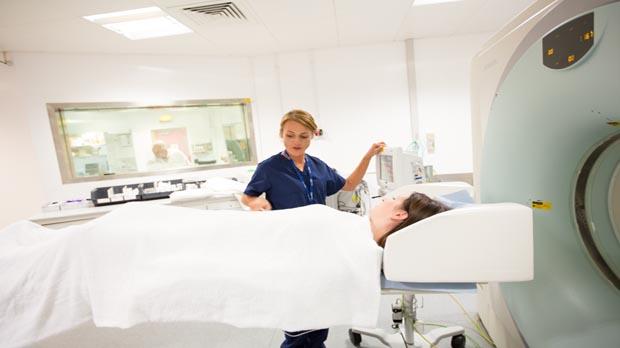
Last year in the UK over 60,000 cancer patients enrolled on clinical trials aimed at improving cancer treatments and making them available to all.
This is a study to see if there are particular cells in the immune system that are related to the development of mesothelioma.
Mesothelioma is a type of cancer that can develop in the tissue covering the lungs (the pleura). People who have cancer affecting the lungs or the pleura may develop a build up of fluid in their chest. This is called a pleural effusion. If mesothelioma is causing this, the fluid may contain cancer cells.
If you have a pleural effusion, you can have the fluid drained. Your doctor can use a sample of the fluid to look for mesothelioma cells. They may also take samples of tissue (biopsies) from the lining of your lungs to look for mesothelioma.
Researchers want to learn more about the effect the immune system has on how and when mesothelioma develops. To do this, they want to look at samples of fluid drained from pleural effusions in people who have mesothelioma and from people who have a pleural effusion but who don’t have mesothelioma.
There is no direct benefit to you from taking part in this study. But the researchers hope the results will help them to understand more about how the immune system affects mesothelioma, and guide them in developing better treatments.
You may be asked to join this study if your doctors suspect you have mesothelioma and you are going to have a procedure to drain fluid that has built up in your chest, or surgery to remove the fluid and take biopsies from the lining of your lung (the pleura).
The study will also recruit people who are going to have fluid drained from a pleural effusion, but their doctors don’t think it is caused by mesothelioma.
If you agree to take part, the researchers will get a sample of the fluid from your pleural effusion. If you have surgery, they will also take an extra biopsy from the lining of your lungs.
They will also ask you to give a blood sample. They will try to take this sample at the same time as you have other blood tests.
If you are diagnosed with mesothelioma, the study team will ask you to give more blood samples 3 months, 6 months and a year later.
The researchers will study the blood and fluid samples to look for markers that show them how the immune system is working in people who do have mesothelioma and in people who don’t have the disease.
Taking part in this study doesn’t involve any extra hospital visits.
There are no side effects from taking part in this study as the samples are taken during planned procedures.
If you have extra blood tests, you may have some discomfort, and bleeding or bruising where the blood sample is taken.
Please note: In order to join a trial you will need to discuss it with your doctor, unless otherwise specified.
Professor Christian Ottensmeier
Professor Gareth Thomas
Experimental Cancer Medicine Centre (ECMC)
Mesothelioma Applied Research Foundation
NIHR Clinical Research Network: Cancer
Southampton Cancer Research UK Clinical Centre
If you have questions about the trial please contact our cancer information nurses
Freephone 0808 800 4040

Last year in the UK over 60,000 cancer patients enrolled on clinical trials aimed at improving cancer treatments and making them available to all.